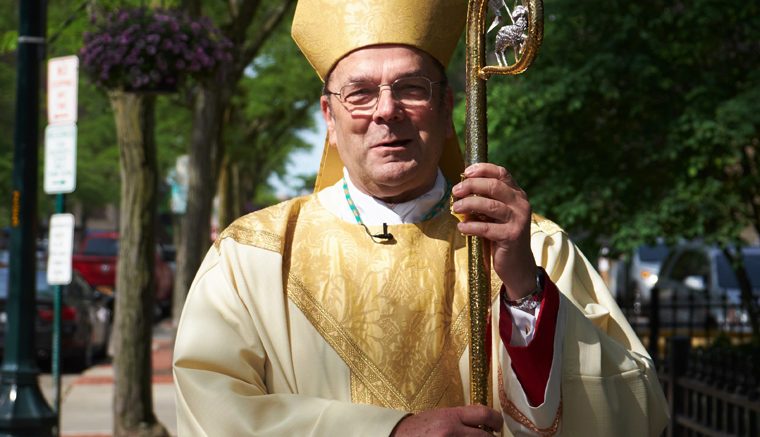A long trip is often more pleasant if we travel with companions. At the beginning of our Lenten journey, I have been thinking about four companions that I would like to join me during our 40-day trek to Easter. Each has something important to teach me; each can help me keep my “eyes fixed on Jesus” as I accept the call to conversion and repentance.
I don’t know about you, but when I was growing up Lent was the time to “give up” something. I think if we took a survey of Christians, most would agree that their memories of Lent included something that they “gave up.” It is also very likely that they would associate fasting with food! I know I did. Chocolate, in any form, was at the top of my list of favorites “to give up!”
Certainly, there is a place for self-discipline which gives up desserts, refrains from eating between meals, and abstains from our favorite evening snack. However, there is another kind of fasting that does not “give up” but does something positive.
When the Chosen People complained that their fasting did not please God, Isaiah reminded them, “This is the fasting that I wish. . . . Share your bread with the hungry, shelter the homeless; clothe the naked when you see them and do not turn your back on your own.”
Lent is a time for self-reflection. When we look within ourselves we may discover positive actions and attitudes that we need to cultivate, e.g., speaking kindly to the person who annoys us; practicing patience when we have to wait at a red light, in the grocery line, or behind a car moving along well below the speed limit; or when we have to contend with rambunctious children, a demanding employer, or a thoughtless colleague.
I am sure you are familiar with the parable of the Good Samaritan. An injured victim of a robbery lies on the side of the road. Who stopped to help the man? It was not the priest or the Levite but an inhabitant of Samaria “despised by the Jews because they did not observe the true religion.” The Samaritan sees the unfortunate man and reaches out to him. Love is not an abstract concept. It “sees” the other person, especially the one on the sidelines, the one who is isolated and out of the mainstream of activity, the one excluded and on the fringes and reaches out to encounter the person.
“The Good Samaritan indicates a lifestyle, the center of which is not ourselves, but others, with their difficulties, who we meet on our path and who challenge us. . . . Let us ask ourselves: is our faith fertile? Does it produce good works? Or, is it rather sterile? Do I make neighbors, or do I just pass by” (Pope Francis, Angelus Message, July 10, 2016)? The day will come when we will be judged on how neighborly we have been. “Let us not pass by the poor man, deaf to his groans, but with ready good will show mercy to the needy so that we ourselves may find mercy at judgment” (St. Leo the Great). Who are the needy in your life? How can you reach out to them?
The parable of the Prodigal Son begins with a man who has two sons. The younger son asks his father for his portion of the family estate as an early inheritance. Once received, the son promptly sets off on a long journey to a distant land and wastes his fortune on wild living. He is the “prodigal” son because he is “reckless” with his inheritance and “squanders” it. As time passes, the wayward son “comes to his senses” and returns to his father’s house. Lent is a time to come to our senses and embrace a metanoia, “a complete change of mind and heart. This change of heart is more than simply regretting our sins. It is a complete reorientation of one’s life” (Cf. Give Us This Day, Father James Martin, March 2019 issue).
From time to time, like the prodigal son, we stray from “our father’s house.” Lent challenges us to consider how we have gone astray and to pray for the grace to return to the warm embrace of the Father’s love. “God waits and God forgives. He is the God of mercy: he does not tire of forgiving us. It is we who are tired of asking for forgiveness, but he never gets tired” (Pope Francis, Homily, March 28, 2014). The wastefulness of the prodigal son is matched by the extravagance of the father’s love.
Isaiah, the Good Samaritan, and the Prodigal Son are good companions! Spend some time with Isaiah 58:1-9, Luke 10:29-37, and Luke 15:11-32. Allow the sacred word to take root in your heart. Pray for the grace to follow the wise advice of Isaiah, the neighborliness of the Good Samaritan, and the conversion of the Prodigal Son. Be confident that the Prodigal Father — the extravagant father — is always ready to embrace you with His love and mercy.
If you have a prayer intention you would like me to consider during the weeks ahead, please mail it to my attention at 240 E. Onondaga St., Syracuse, N.Y. 13202.







